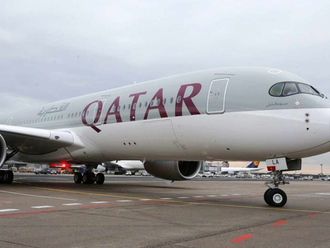Doha: More than 1,000 artificial Reef Balls have been deployed across Qatari waters in a landmark project aimed at restoring ailing coral reefs, researchers here said.
Qatar University is leading an environmental programme to rehabilitate Qatar's coral reefs and marine environment lost to decades of aggressive coastal work and marine pollution.
"Our coral reefs have been completely destroyed due to heavy human intervention along the costal areas, fishing activities and oil pollution. But we now finally see new signs of life and fish colonies that indicate a recovery of the original ecosystem, despite the constant threats posed by human activities and global warming," said Mohsin Abdullah Al Ansi, Director of the Environmental Studies Centre (ESC) at the University.
Since 2002 the university has introduced more than 1,000 so-called Reef Balls, artificial environment-friendly reefs that encourage fish settlements and the creation of an ecosystem that helps coral growth, he said.
Five years after starting the programme, Al Ansi said the university is achieving important results in repopulating the costal areas of Qatar.
"We have disseminated the Reef Balls along all major costal areas of Qatar, including Mesaied, Ras Laffan, Dukhan and Halul with very positive results."
Al Ansi, who spoke to Gulf News while on a monitoring mission on research vessel Muktaber Al Behar, said the university had already extended its support to other Gulf countries.
"We have a project also in Kuwait. We have already placed 1,000 Reef Balls there and we are planning to add another 2,000 upon the request of the local environmental authorities. Partners pay only for the cost of the materials," said Al Ansi.
Using a US technology the ESC manufactures in its own laboratories the artificial balls are made of a special, marine-friendly concrete and are designed to mimic natural reef systems. The balls remain stable on the seabed despite strong currents.
Habitats for fishes
"In this way we can restore ailing coral reefs and create habitats for fishes," the specialist said.
Monitoring programmes follow the deployment of the Reef Balls to study the settlement rate of the reefs and the types of plant and sea life that are attracted to the reef areas. Reef Balls were first brought to Qatar by the Reef Balls Foundation through the Qatari Science Club at the end of the nineties.
It is only in recent years that Qatar and other Gulf countries have become sensitive to the issue of coral preservation, but too late to rescue what was once a rich ecosystem.
Over the past half century the Gulf waters have been increasingly threatened by global warming, discharge from desalination plants, dredging work along the coast, oil vessels' traffic and spill-outs and fishing activities, which have irremediably destroyed the reefs and their delicate ecosystem.
In June 2006, a joint venture between Environment Agency-Abu Dhabi (EAD) and Qatar's Supreme Council for the Environment produced the first map of Southern Gulf coral reefs to help authorities draft a management plan for the remaining corals in-between the two countries.












